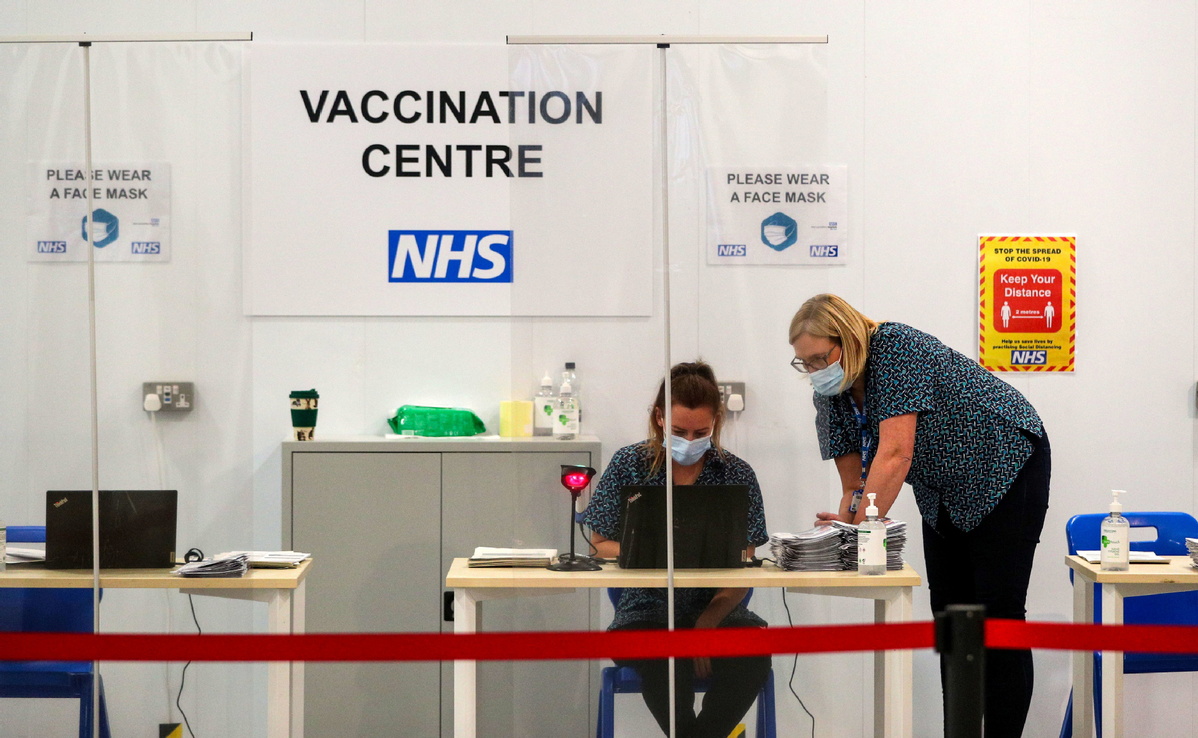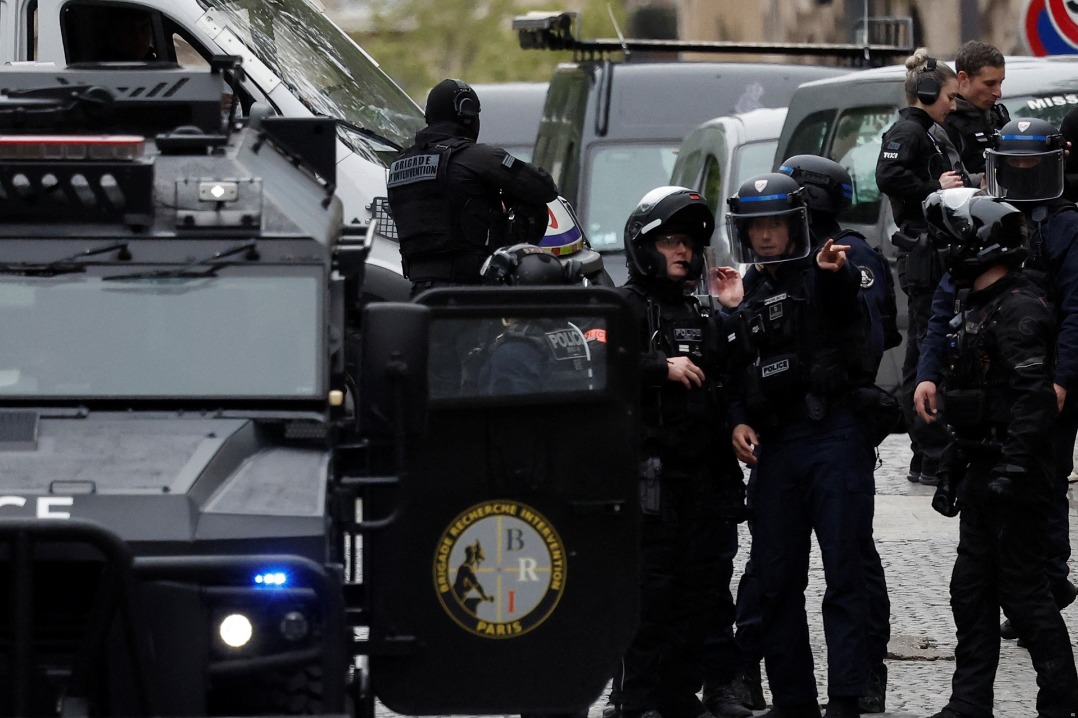Vaccine rollout likened to 'race against death'


Hospitals, medical workers are 'under extreme pressure', warns NHS chief
Britain's vaccine deployment minister, Nadhim Zahawi, says the country faces a "race against death" to ensure those most at risk receive the COVID-19 vaccine.
Initially, people aged 80 and older and medical personnel were the priority for being given their first dose by the National Health Service, which is known as the NHS, but in areas where most of these groups have already received the first shot, the priority list will now include those aged 70 and older and the clinically extremely vulnerable, such as cancer patients.
Speaking on Times Radio, Zahawi said the second dose of vaccines "are absolutely going to go ahead "and that people who had already received their first dose "will have to have that second dose within that 12-week period ... That is absolutely going to happen." This comes 24 hours after Foreign Secretary Dominic Raab had said the government could not guarantee everyone would receive their second dose within the 12-week target time.
The pair do, however, seem to be more in agreement about when the current lockdown restrictions might possibly start being relaxed.
The situation will be reviewed in mid-February and Raab has said restrictions could start to change in early spring, but on a gradual basis, rather than with a "big bang".Zahawi has also suggested that, should the vaccine program work as envisaged, relaxation might begin in early March.
"There will be a point at which we can begin to gradually lift the nonpharmaceutical interventions," he said, explaining that if the target for high-priority vaccinations was met, and allowing time for the vaccines to take effect, "you're talking about the first, second week of March".
From Monday, vaccination invitations will be sent to more than 4.6 million more vulnerable people, as an additional 10 mass vaccination sites nationwide come into operation.
Prime Minister Boris Johnson said the vaccination program was being delivered "at a rate of 140 jabs a minute", and the importance of the program has been underlined by stark comments from NHS Chief Executive Simon Stevens.
"The facts are very clear and I'm not going to sugar-coat them. Hospitals are under extreme pressure and staff are under extreme pressure," he told the BBC, saying the second wave of infections had put the NHS under greater strain than any other event in its 72-year history.
"Since Christmas Day, we've seen another 15,000 increase in the inpatients in hospitals across England. That's the equivalent of filling 30 hospitals full of coronavirus patients and, staggeringly, every 30 seconds across England another patient is being admitted to hospital with coronavirus," he said. "It's sort of become glib to talk about this as the worst pandemic in a century but that is clearly correct."
Meanwhile, supermarkets face a crackdown on the enforcement of social distancing rules, and a possible one-adult rule for shopping visits, amid fears people may be disregarding advice and using them as an excuse for a family outing, causing overcrowding.
Gary McFarlane, a director of the professional association representing environmental health officers, told the Daily Telegraph: "There is evidence to suggest that family units are making trips to the supermarket which is not really in the spirit of the regulations. There is nothing to say you can't do it-but is it wise? The answer is clearly no."
A representative of the Local Government Association said local authorities had been doing their bit to make sure rules were observed, and it was hoped that supermarkets might now take the initiative.
"Supermarkets have been highlighted as areas of concern as one of the few types of business still able to be open," said the spokesperson.
"Some supermarkets have started to enforce their rules more effectively through the use of security guidance, and, hopefully, more will follow suit to help reduce transmission risk in these high-footfall areas.
"Councils will continue to work with local partners, including the police, to ensure they keep people safe and take action, if necessary and appropriate, against any breaches to help reduce infection rates."
A study by mathematicians at Cardiff University has calculated that the movement of university students returning home around Christmas could have resulted in as many as 9.000 new infections.
Variables used in the calculation included virus prevalence, household occupancy and the likelihood of secondary transmission.
"With the potential movement of over 1 million UK students for the Christmas vacation, even a modest one percent infection level (meaning 10 in 1,000 students are infected, perhaps many of them without symptoms at the time of travel) would equate to 9,400 new secondary household cases across the country," said study leader Paul Harper.



































